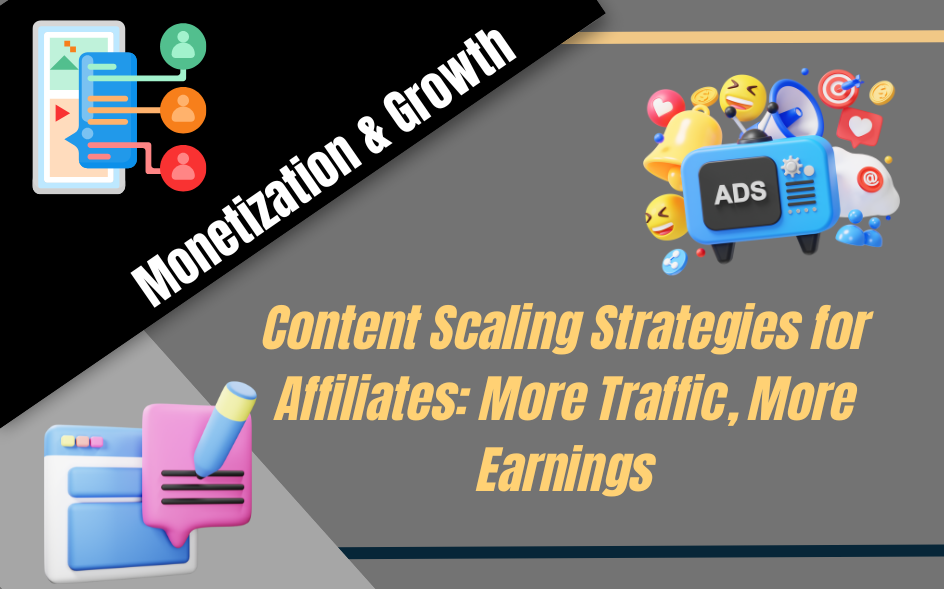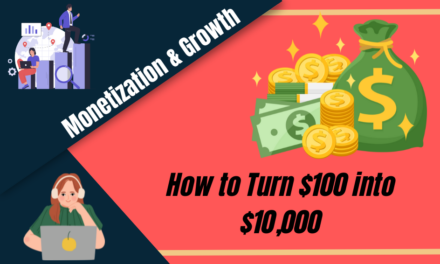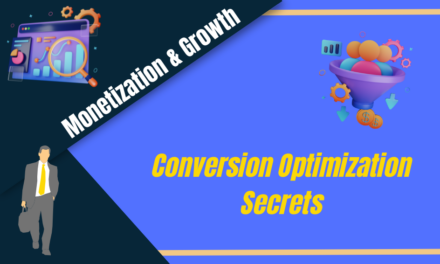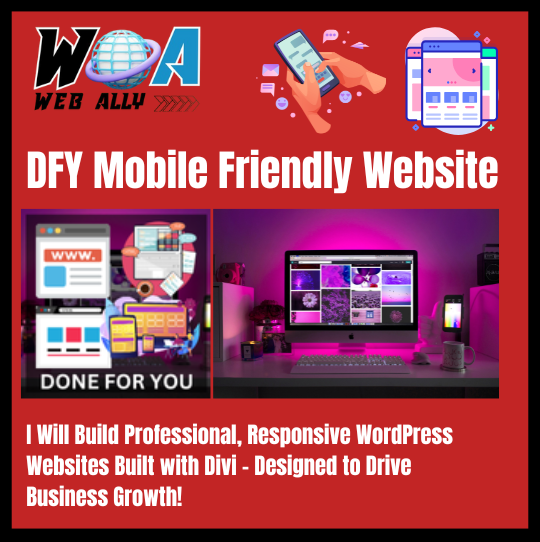As an affiliate marketer, one of the most effective ways to boost your earnings is by scaling your content strategy. Scaling is not just about creating more content; it’s about strategically expanding your reach, optimizing your efforts, and increasing your traffic and revenue. In this article, we’ll explore content scaling strategies that can help you achieve more traffic, more leads, and ultimately, more earnings as an affiliate marketer.
1. Repurpose Content to Maximize Reach
One of the most efficient ways to scale your content without constantly creating new material is to repurpose your existing content. Repurposing allows you to reach new audiences and provide fresh value without starting from scratch.
- Turn blog posts into videos: You can create video versions of your popular blog posts. This helps you tap into YouTube and other video-based platforms, increasing your chances of reaching a broader audience.
- Infographics and social posts: Break down your long-form content into digestible infographics or social media posts. These are easily shareable, giving your content greater visibility.
- Podcasts and webinars: Convert your written articles into podcast episodes or webinars. These formats allow for more in-depth discussions and can cater to audiences who prefer listening over reading.
2. Focus on SEO Optimization
Search Engine Optimization (SEO) is crucial for affiliate marketers who want to scale their content. By optimizing your content for search engines, you can increase your organic traffic without spending money on paid ads.
- Keyword research: Start by conducting thorough keyword research to find high-traffic, low-competition keywords in your niche. Use tools like Ahrefs, SEMrush, or Google Keyword Planner to identify the keywords that will drive the most traffic.
- On-page SEO: Ensure your content is well-optimized with title tags, meta descriptions, headings, and internal linking. This helps search engines crawl your content and improves your ranking on search results.
- Content clustering: Group related pieces of content into “content clusters.” This involves creating pillar pages that link to related blog posts, improving your site’s authority and relevance in the eyes of search engines.
3. Leverage Guest Blogging and Collaborations
Guest blogging is a powerful way to scale your content by tapping into the audience of other established websites or influencers in your niche. By writing guest posts, you can increase brand awareness, build backlinks to your site, and generate more traffic.
- Identify top blogs: Look for blogs or websites that have a strong following in your niche and accept guest posts. Focus on those that allow you to include backlinks to your affiliate offers.
- Collaborate with influencers: Team up with influencers who align with your brand. You can co-create content such as interviews, product reviews, or joint webinars. Their audience exposure can significantly increase your reach.
4. Create Evergreen Content
Evergreen content refers to content that remains relevant over time and continues to generate traffic long after it’s published. This type of content ensures that your affiliate links are continuously exposed to new readers, resulting in sustained traffic and commissions.
- How-to guides: Step-by-step guides or tutorials that explain how to use a product or service are excellent examples of evergreen content. For example, “How to Start a Blog in 2024” will be relevant for years.
- Product reviews: Write in-depth, unbiased reviews of popular products or services. As long as the product remains in demand, your content will continue to drive traffic.
- Case studies and success stories: Sharing real-life examples of how your affiliate products have helped others can establish trust and attract long-term traffic.
5. Increase Content Frequency Without Sacrificing Quality
Scaling doesn’t mean you have to produce an overwhelming amount of content. Instead, focus on increasing your content frequency without compromising on quality. Consistency is key in driving traffic and building a loyal audience.
- Batch content creation: Set aside dedicated time to create content in batches. This allows you to plan and publish more frequently without burning out.
- Outsource: Consider outsourcing content creation to experienced writers or agencies who can maintain quality while allowing you to scale production.
6. Utilize Paid Advertising for Faster Scaling
While organic traffic is great, paid advertising can help accelerate your content scaling efforts by reaching a broader audience quickly. Platforms like Google Ads, Facebook, and Instagram offer excellent opportunities to promote affiliate offers.
- Targeted campaigns: Use paid ads to promote your best-performing content. With targeted ads, you can reach users who are already interested in your niche, increasing the likelihood of conversions.
- A/B testing: Test different headlines, visuals, and calls to action to find what works best for your audience. This allows you to optimize your campaigns for maximum ROI.
7. Build an Email List to Promote New Content
Building an email list is a critical step in scaling your affiliate marketing efforts. With an email list, you can directly reach your audience and notify them of new content, product recommendations, or special offers.
- Lead magnets: Offer free resources like eBooks, checklists, or exclusive access to webinars in exchange for visitors’ email addresses.
- Segment your list: Segment your email list based on user interests, behavior, or demographic information to send more personalized and relevant content.
- Automate email campaigns: Set up automated email sequences to nurture your leads and keep your audience engaged with your content.
8. Focus on User Experience (UX)
The user experience on your website plays a crucial role in scaling your content. A well-designed site with fast load times and mobile optimization can significantly reduce bounce rates and encourage visitors to stay longer, consuming more content.
- Mobile optimization: Ensure your content is easy to read and navigate on mobile devices. More than half of internet traffic now comes from mobile users.
- Improve website speed: Slow loading times can cause visitors to leave your site before they even see your content. Use tools like Google PageSpeed Insights to monitor and improve your website’s performance.
Conclusion
Scaling your content as an affiliate marketer requires a combination of strategic planning, leveraging multiple content formats, optimizing for SEO, and engaging with your audience through collaborations and email marketing. By implementing these content scaling strategies, you can attract more traffic, increase your affiliate earnings, and build a sustainable affiliate marketing business. Keep testing and optimizing your approach to ensure continued success in this competitive industry.














